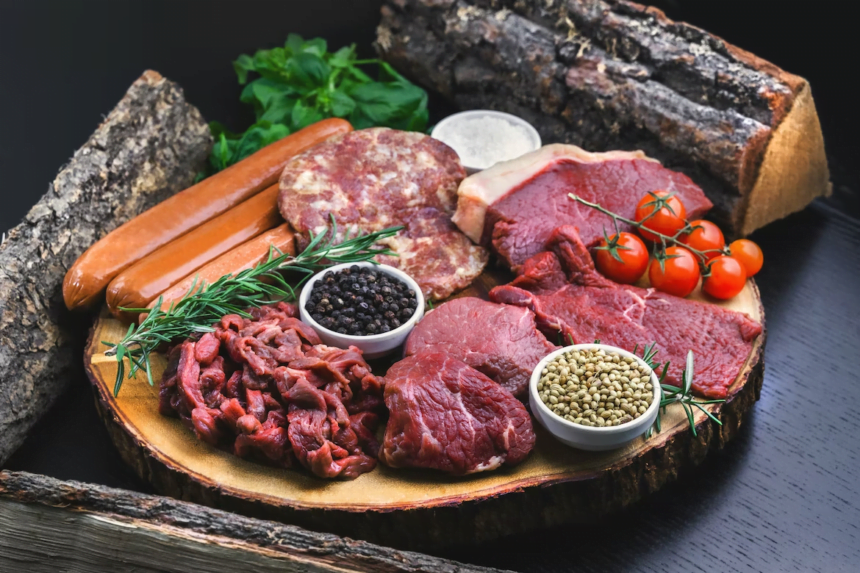Meat is still a staple food in many households here in Australia. It is an excellent source of protein and essential nutrients that our bodies need to function correctly. However, not all meats are created equal. Let’s take a look at what different meats can do for your health.
Beef
Beef is a rich source of protein, iron, zinc, and vitamin B12, which are all essential for maintaining good health. However, it is also high in saturated fats, which can increase the risk of heart disease and other health problems.
To reduce the risk of consuming too much saturated fat, it is recommended to choose lean cuts of beef, such as sirloin or tenderloin. These cuts have a lower fat content and are just as rich in essential nutrients.
Chicken
Chicken is another popular meat in Australia and is often seen as a healthier alternative to beef and lamb. While chicken is lower in saturated fats than red meats, it is still important to choose lean cuts to reduce the risk of consuming too much saturated fat.
Cockerel chicken is an excellent source of protein and essential nutrients, including niacin, vitamin B6, and selenium. It is typically more flavorful and has a firmer texture than its female counterpart, the hen. It’s also leaner than most commercial chicken, making it a healthier protein source.
Lamb
Lamb is another popular meat in Australia, particularly during the winter months when hearty stews and roasts are in demand. Like beef, lamb is an excellent source of protein, iron, and zinc. It is also rich in vitamin B12 and selenium, which are essential for maintaining healthy brain function and immune system health.
However, lamb is also high in saturated fats, particularly if consumed in the form of fatty cuts or processed meats like sausages. To reduce the risk of consuming too much saturated fat, it is recommended to choose lean cuts of lamb, such as loin chops or leg meat.
Kangaroo
Kangaroo meat is a relatively new addition to the Australian diet, but it is becoming increasingly popular due to its health benefits. Kangaroo meat is incredibly lean, with less than 2% fat, making it an excellent choice for those looking to reduce their saturated fat intake. It is also a rich source of protein, iron, and zinc. Kangaroo meat is also a great source of conjugated linoleic acid (CLA), a type of fatty acid that has been linked to weight loss and improved immune function.
Turkey
Turkey is a popular meat during the festive season, but it’s also a great choice for your health. Like chicken, turkey is lower in saturated fats than red meats, making it an excellent choice for those looking to reduce their saturated fat intake.
Turkey is also a rich source of protein and essential nutrients, including vitamin B6, niacin, and selenium. It is also a good source of tryptophan, an amino acid that helps the body produce serotonin, a neurotransmitter that regulates mood.
Fish
Fish is an excellent source of protein and essential nutrients, including omega-3 fatty acids, which are essential for maintaining heart health and cognitive function. Salmon, tuna, and sardines are all excellent sources of omega-3 fatty acids. These fish also contain high levels of vitamin D, which is essential for bone health and immune function.
While all meats have their nutritional benefits, it is essential to choose lean cuts of meat to reduce the risk of consuming too much saturated fat. Kangaroo meat is an excellent option for those looking for a lean and sustainable protein source, while fish is a great choice for those seeking omega-3 fatty acids and other essential nutrients.
It’s also essential to consider the quality of the meat you consume. Some commercial meats may contain added hormones, antibiotics, and other harmful additives that can have adverse effects on health. Choosing organic or grass-fed meat can reduce the risk of consuming harmful additives and promote more sustainable and healthy food choices. Selecting meat from local sources also helps to give our farmers a boost, along with the economy.
There is no one-size-fits-all answer when it comes to meat consumption. It is essential to consider your personal nutritional needs, as well as the environmental impact and quality of the meat you consume. By making informed choices and selecting lean and sustainable protein sources, you can promote better health and more sustainable food choices.

